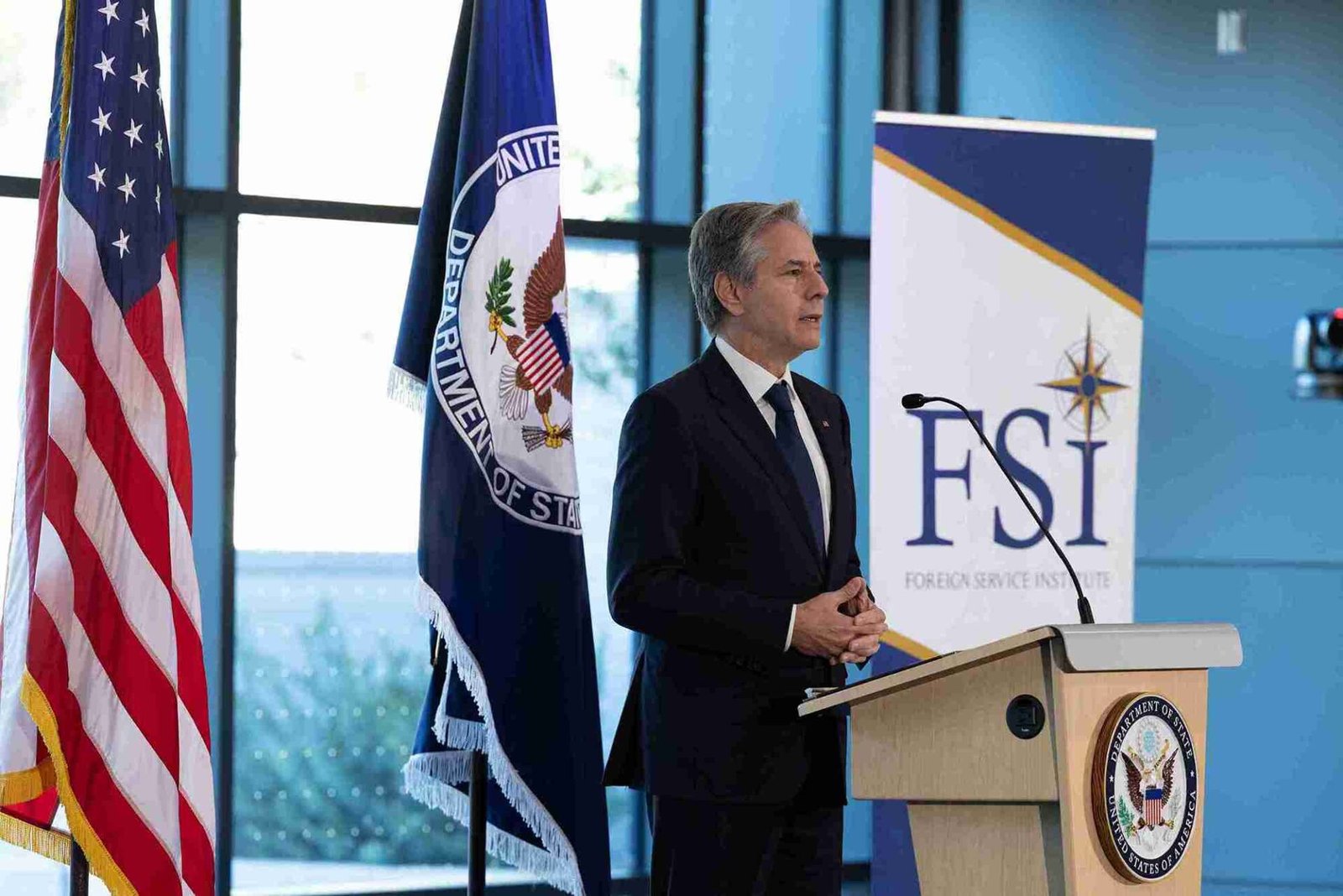Virginia (TDI): On Wednesday, Antony J. Blinken, Secretary of State, delivered a seminal address on American Diplomacy for a New Era at the Foreign Service Institute in Arlington, Virginia.
In his speech, he stated that U.S. diplomacy prioritizes leadership in norms and standards, the promotion of digital freedom, the protection of sensitive technology, and the enhancement of vital supply chain resilience.
He stated that the United States remains dedicated to fostering what is termed digital solidarity. It is significantly interested in collaborating with and supporting partners who align with its vision for a dynamic, open, and secure technology future.
Blinken further stated that the United States has allocated additional resources to address the climate problem, facilitate the clean energy transition, and safeguard the environment through various U.S. departments and the U.S. Special Presidential Envoy for Climate.
Following COVID, President Biden emphasized the necessity for the U.S. to prioritize health diplomacy, leveraging the extensive expertise of this department and USAID with SARS, Ebola, and HIV/AIDS.
Read More: United Sates Plans Trilateral Summit with Korea & Japan
He stated that the U.S. established a Bureau of Global Health Security and Diplomacy. This team is a primary focus for our public health initiatives, collaborating with international partners to enhance health systems, combat lethal diseases, and avert future pandemics.
Blinken asserted that the problems presented by the People’s Republic of China impact all facets of our foreign policy and every global region.
He additionally stated that “we established what we refer to as ‘China House’ – an office that consolidates experts from various departments and agencies in a single location, facilitating improved coordination and management of this intricate and significant relationship.”
Blinken also stated, “In a world where foreign and domestic policy is increasingly interconnected, we established a Subnational Diplomacy Unit to foster collaboration with—and among—mayors, governors, and locally elected officials domestically and internationally.”
He stated, “We have revolutionized our approach to assessing, accepting, and managing risk in an increasingly volatile environment.”
He “stated that the broader trend is facilitating the expansion of the United States reach and optimizing the utilization of U.S. taxpayers.
He underscored that establishing a single U.S. embassy may have taken up to 15 years and hundreds of millions of dollars in the past. The U.S. government collaborated with Congress to revise the regulations and procedures governing the construction of embassies.
The U.S. can now deploy to additional locations rapidly without compromising security. This implies that America can promote its interests and ideals more efficiently in an increasingly competitive global landscape. He contributed
He also observed that, within the past two years, the United States government had inaugurated five new embassies in the Indo-Pacific region: in the Maldives, Tonga, Seychelles, Vanuatu, and the Solomon Islands.
Blinken further stated that the United States is transforming diplomacy using various tools.
Three years ago, the U.S. unveiled the department’s digital strategy to integrate more data into our operations, resulting in a significant increase in recruiting specialized data officers to facilitate this initiative.
Currently, we are employing more immediate, data-driven insights to inform our decision-making processes in the design of our foreign assistance programs and our response to global emergencies.
Blinken underlined that the United States is leveraging technology to enhance efficiency in various sectors.
Read More: United States-Kazakhstan strengthens strategic Partnership
Furthermore, he stated that we have adopted an additional tool: downgrading, declassifying, and disseminating intelligence to our foreign partners and the public.
He additionally asserted that in 2022, the United States, leveraging exceptional Intelligence Community capabilities, alerted the world before the subsequent invasion of Ukraine.
Last month, Blinken stated that the U.S. employed intelligence diplomacy to illuminate the connection between the media entity RT and Russia’s cybersecurity infrastructure, particularly in their attempts to influence MoldMoldova’s Upcoming election.
In these instances, and several others, intelligence diplomacy facilitated the United States’s uncovering of falsehoods and disinformation, fostering trust with American allies and formulating a more robust and unified response, stated Blinken.
For full access to full Speech on American Diplomacy for a New Era Click Here.
Aisha Noor works for The Diplomatic Insight.



